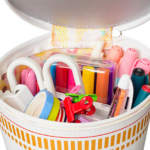The veneer of certain companies that promote their “cool” atmosphere and healthy work environment is starting to flake off. There’s a name for this approach, practiced by many companies: “well-being washing,” and it’s no longer going unnoticed by employees. Even when it comes to remote working.
“At first, the atmosphere looked great: foosball and a young team,” says a former employee of a French tech company on the Instagram page “Balance ta start-up” (meaning “Call out your start-up”). Then very quickly, she becomes disillusioned: “In fact, [it was] a nightmare.” There’s intensive work weeks to reach objectives, long hours and overtime without the slightest compensation, drug use, and openly shaming some managers.
On the account Balance ta start-up, these kinds of testimonies have been increasing in number for nine months. Created in December 2020, the account has 185,000 subscribers today and encourages “freely expressing experiences from the start-up ecosystem,” according to its creators. “Because foosball is cool, but labor laws are even better.”
Among the testimonies, ex-employees of a free French magazine dedicated to new shopping and eating spots, relive the pressure they were under during after-work drinks, which they were compelled to attend or risk being summoned and reproached for not making an effort to integrate into the company culture.
You had to “personify the spirit of the magazine,” several of them note. “It meant you were cool enough, cute, liked to party, as well as did drugs. You had to personify the spirit of the publication in order to be accepted and get through the attacks,” details one former collaborator on the Instagram account. Behind the “cool” facade of the magazine, a dark side is revealed. And the image of a relaxed entrepreneurial world that is concerned about employees’ well-being is shattered.
No more suffering silently at work
Indeed, the issue of well-being at work has been gaining legitimacy for several years now with younger generations putting an emphasis on the balance between professional and personal life. The idea of suffering at work, for work, is out of the question now. Companies are trying to make well-being at work an attractive asset and some have even created positions dedicated to such missions and workplace policies, such as chief happiness officer, a person responsible for well-being at work. These professionals try to bring workers together in a positive spirit, establish an environment conducive to employee development and growth and facilitate social connections between employees.
But according to the “Baromètre des salariés” (Barometer of employees) focusing on health and well-being in French workplaces conducted by BVA-BPI group in 2019, 41% of employees in the tertiary sector said they often feel stress at work.
Beneath the appearance of “cool” and “good atmosphere,” anxiety and overworking are never far away. This discrepancy between how the company portrays itself in its communication strategy and the real working conditions is called “well-being washing.”

A facade of well-being
Foosball, freshly made smoothies, yoga classes. All these activities in companies contribute to an image of open, welcoming and modern companies. And even if they may truly contribute to the daily enjoyment of employees, they are also the first signs of “wellness washing” according to Nora Rosendahl, president and CEO of Hintsa Performance, who has listed the “seven sins” that are most frequently seen in companies. Among them are taking a standardized approach to employees’ well-being, shifting responsibility and misleading assessments.
“Addressing wellbeing superficially with e.g., fresh smoothies, stand-up desks, or yoga classes, while neglecting the holistic nature of wellbeing. For example, a stand-up desk will do little for your health if you are using it 70 hours a week,” she writes in a blog article. And a game of foosball won’t do much to reduce stress levels.
What role does well-being play in remote work?
With the pandemic, the needs of remote working employees have been reduced to the basics.
“With home working, employees have often expressed very simple but concrete needs in terms of work: often a working laptop with the necessary software!” explains communications expert Lisa Wyler in French publication Capital. Gone are the days of playing foosball between noon and 2, days of team-building and fitness sessions with other employees. The pandemic has put an end to distractions, highlighting the need for real social ties between employees.
From now on, well-being at work will be achieved through a careful balance between work rhythms, sharing among employees and new approaches to work space. JB
RELATED STORIES:
How fashion brought positivity to Gen Z during the pandemic
A first film on the coronavirus pandemic has been shot


